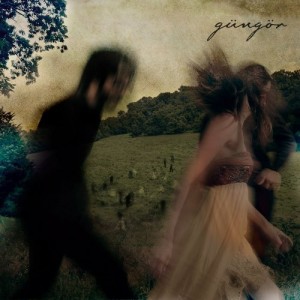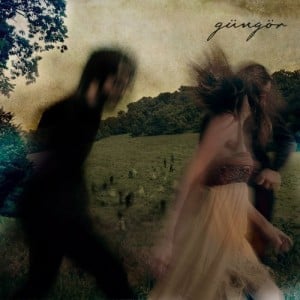You know music has power when it has you shivering while running in hundred-degree heat.
Güngör’s Ghosts Upon the Earth is like that, though. From the opening track, the album screams its willingness to be and do something terribly different from most Christian music of the last quarter century. For one thing, this is an album, not just a collection of songs. For another, the musical skill on display here combines with a willingness to forge a new sound, rather than retread the same old pop-rock milieu one more time.
Musical and lyrical unity in an album is a rarity today in any genre, but this album tells a story. Indeed, it tells the story.
But back to those shivers.
“Let There Be” is the first and only time to date that any piece of art in any medium has struck me with the same force and intensity as Tolkien’s glorious description of creation in The Silmarillion. One suspects, given some of the commonalities between the two, that Güngör is familiar with “Ainulindalë”, Tolkien’s magnificent chapter of sung creation and sung rebellion and sung divine triumph.
Ghosts Upon the Earth sweeps from this divine moment of joyous creation through an idyllic, Edenic revel in the delight of yet unbroken fellowship with God before plunging through the Fall and into the longing that pierces every heart in this age. But the hope of resurrection comes soon in the proclamation that “when death dies / all things live”, and this theme of hope then undergirds the painful journey that follows. Every joy that follows in this album is tinged with sorrow, but every moment of despair gives way eventually to hope. Again: this is a journey. It is beautiful and broken.
 Güngör’s first album, Beautiful Things, had musical interest in spades but sometimes at the cost of musical intelligibility. Much of the album – the titular track the main exception – required repeated listens before I could “get” it, and the recording never entered my regular listening. It was, like many classical pieces I have studied, interesting but not consistently engaging. But here, the band has achieved something remarkable: they have kept the same musical interest and complexity, but in such a way that every song on the album is engaging. You can sing this stuff with them, but you can also dig deep, deep down into the musical guts and find there remains yet more to plumb. That’s hard to pull off.
Güngör’s first album, Beautiful Things, had musical interest in spades but sometimes at the cost of musical intelligibility. Much of the album – the titular track the main exception – required repeated listens before I could “get” it, and the recording never entered my regular listening. It was, like many classical pieces I have studied, interesting but not consistently engaging. But here, the band has achieved something remarkable: they have kept the same musical interest and complexity, but in such a way that every song on the album is engaging. You can sing this stuff with them, but you can also dig deep, deep down into the musical guts and find there remains yet more to plumb. That’s hard to pull off.
If you take a look at Güngör’s blog, you’ll note that Michael Güngör has criticized the typical evangelical approach to art, and rightly so. This album isn’t just a piece of music; it’s a salvo in a war against a reductionist understanding of art that typifies so much of evangelicalism. If it has become something of a cliche to attack the evangelical approach to art, there nonetheless remains a need for pieces to fill the gap, and there remains too the need to educate.
One reviewer on iTunes noted that the album confused him. It is not, he said, a typical worship album, and the lyrics were not all perfectly suitable for use in evangelism. You can not simply hand this to an unbeliever and expect them to come away understanding the gospel perfectly. The reviewer seemed particularly confused by the second track, “Brother Moon,” with its references to “Brother Moon” and “Sister Sun” and “Mother Earth.” I was bemused by his concern. Every reference to nature points right back to its Creator. The song points toward an innocent, nearly Edenic delight in unbroken fellowship with God and in all his hands have made. In the end, the album is as gospel-saturated as one could wish. But this was too much lyrical and intellectual complexity for someone looking for an evangelistic tract in the form of an album.
Login to read more
Sign in or create a free account to access Subscriber-only content.
Topics:
